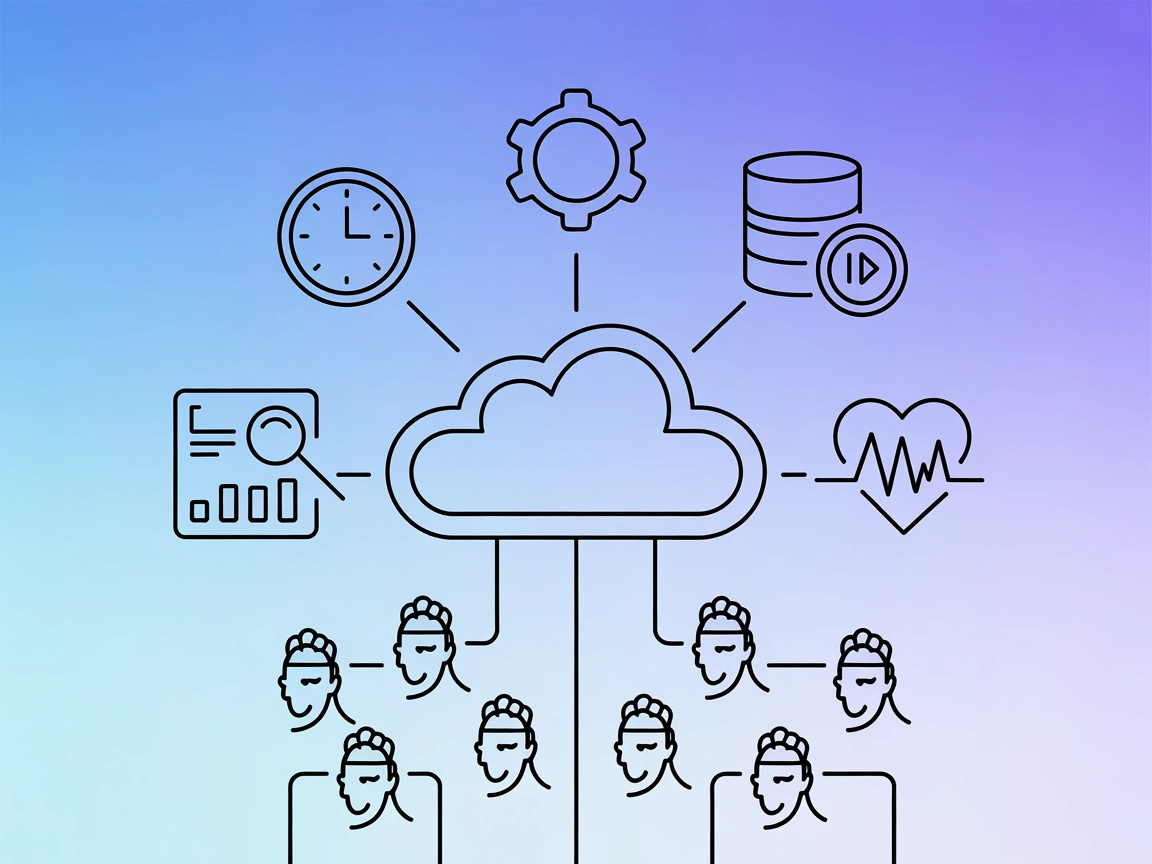
ModelContextProtocol (MCP) Server Integration
The ModelContextProtocol (MCP) Server acts as a bridge between AI agents and external data sources, APIs, and services, enabling FlowHunt users to build context...

Cronlytic MCP Server lets developers and AI agents automate, monitor, and manage serverless cron jobs securely and efficiently, all within FlowHunt’s workflow platform.
FlowHunt provides an additional security layer between your internal systems and AI tools, giving you granular control over which tools are accessible from your MCP servers. MCP servers hosted in our infrastructure can be seamlessly integrated with FlowHunt's chatbot as well as popular AI platforms like ChatGPT, Claude, and various AI editors.
The Cronlytic MCP Server is a comprehensive Model Context Protocol (MCP) server designed to integrate with the Cronlytic API, enabling AI agents and LLM-powered applications to interact seamlessly with serverless cron job infrastructure. It provides a bridge for large language models to perform CRUD operations—create, read, update, and delete—on cron jobs, as well as advanced tasks such as pausing, resuming, and monitoring job execution. The server also supports log access and performance metrics retrieval, enhancing observability and automation. By exposing these features through standardized MCP interfaces, Cronlytic MCP Server streamlines workflow automation for developers, allowing direct interaction with Cronlytic resources via natural language or programmatic requests within AI development environments.
~/.windsurf/config.json).{
"mcpServers": {
"cronlytic": {
"command": "python",
"args": ["-m", "cronlytic_mcp_server"]
}
}
}
~/.claude/config.json).{
"mcpServers": {
"cronlytic": {
"command": "python",
"args": ["-m", "cronlytic_mcp_server"]
}
}
}
~/.cursor/config.json).{
"mcpServers": {
"cronlytic": {
"command": "python",
"args": ["-m", "cronlytic_mcp_server"]
}
}
}
~/.cline/config.json).{
"mcpServers": {
"cronlytic": {
"command": "python",
"args": ["-m", "cronlytic_mcp_server"]
}
}
}
Securing API Keys with Environment Variables Store API keys and user IDs securely:
{
"env": {
"CRONLYTIC_API_KEY": "your_api_key_here",
"CRONLYTIC_USER_ID": "your_user_id_here"
},
"inputs": {
"base_url": "https://api.cronlytic.com/prog"
}
}
Alternatively, use a configuration file as described in the repository.
Using MCP in FlowHunt
To integrate MCP servers into your FlowHunt workflow, start by adding the MCP component to your flow and connecting it to your AI agent:

Click on the MCP component to open the configuration panel. In the system MCP configuration section, insert your MCP server details using this JSON format:
{
"cronlytic": {
"transport": "streamable_http",
"url": "https://yourmcpserver.example/pathtothemcp/url"
}
}
Once configured, the AI agent can use this MCP as a tool with access to all its functions and capabilities. Be sure to replace "cronlytic" and the URL with your actual MCP server name and address.
| Section | Availability | Details/Notes |
|---|---|---|
| Overview | ✅ | Full overview present |
| List of Prompts | ✅ | 18 prompts referenced, details not listed |
| List of Resources | ✅ | Multiple resources listed |
| List of Tools | ✅ | 9 tools listed in README |
| Securing API Keys | ✅ | Env variable and config file methods detailed |
| Sampling Support (less important in evaluation) | ⛔ | No information found |
The Cronlytic MCP Server is well-documented and production-ready, with comprehensive functionality for serverless cron job management. It covers all major MCP features except for explicit sampling and roots support. Prompt and tool coverage is very strong, but the open-source community engagement is low.
| Has a LICENSE | ⛔ (no LICENSE file detected) |
|---|---|
| Has at least one tool | ✅ (9 tools) |
| Number of Forks | 0 |
| Number of Stars | 0 |
Rating:
Based on the tables above, I would rate this MCP server a 7/10: it is production-ready, feature-rich, and well-documented, but lacks sampling/roots info, open-source traction, and an explicit license.
Cronlytic MCP Server is a Model Context Protocol server that enables AI agents and LLM applications to create, manage, and monitor serverless cron jobs via the Cronlytic API. It exposes standardized interfaces for advanced workflow automation, log access, and performance metrics.
You can create, read, update, delete, pause, resume, and list cron jobs, as well as fetch job execution logs and performance metrics, all via MCP tools.
Store sensitive values such as API keys and user IDs in environment variables or configuration files as described in the documentation. Example: { "env": { "CRONLYTIC_API_KEY": "your_api_key_here", "CRONLYTIC_USER_ID": "your_user_id_here" }, "inputs": { "base_url": "https://api.cronlytic.com/prog" } }
Add the MCP component to your FlowHunt flow, open the configuration panel, and enter your Cronlytic MCP server connection details in the system MCP config section. Once set up, agents can use all Cronlytic tools and resources within your flows.
Common use cases include automated cron job management, monitoring and troubleshooting through AI, bulk job operations, template-driven scheduling, and integrating security/audit flows with serverless cron jobs.
Streamline your cron job management and unlock new automation capabilities by adding the Cronlytic MCP Server to your FlowHunt workflows.

The ModelContextProtocol (MCP) Server acts as a bridge between AI agents and external data sources, APIs, and services, enabling FlowHunt users to build context...

The Model Context Protocol (MCP) Server bridges AI assistants with external data sources, APIs, and services, enabling streamlined integration of complex workfl...

The CircleCI MCP Server bridges CircleCI’s powerful CI infrastructure with the MCP ecosystem, enabling AI assistants to automate and monitor workflows, access b...
Cookie Consent
We use cookies to enhance your browsing experience and analyze our traffic. See our privacy policy.